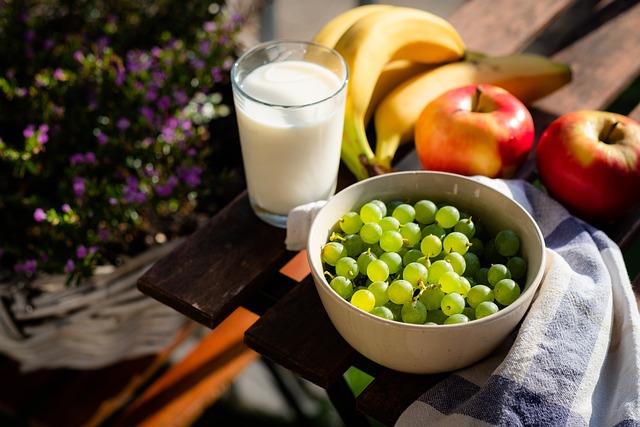Water is the essence of life, making up about 60% of the human body. It plays a critical role in nearly every bodily function, from regulating temperature to supporting digestion, nutrient absorption, and even mental clarity. Yet, despite its undeniable importance, many people underestimate the power of proper hydration. Staying adequately hydrated isn’t just about quenching thirst—it’s a cornerstone of overall health and vitality. In this article, we’ll explore why hydration is so vital, how it impacts your daily well-being, and practical tips for incorporating it into your routine.
Why Hydration Matters
Hydration is more than drinking water when you’re thirsty. It’s about maintaining the delicate balance of fluids in your body to support optimal functioning. Here’s how staying hydrated benefits your health:
1. Supports Physical Performance
Dehydration can impair physical performance by reducing endurance, increasing fatigue, and causing muscle cramps. Whether you’re an athlete or simply engaging in daily activities, adequate hydration ensures your muscles work efficiently and recover faster.
2. Boosts Brain Function
Even mild dehydration can affect cognitive performance, leading to poor concentration, mood swings, and memory lapses. Proper hydration keeps your brain sharp, enhancing focus and decision-making.
3. Promotes Digestive Health
Water is essential for breaking down food, absorbing nutrients, and eliminating waste. Chronic dehydration can lead to constipation, bloating, and other digestive issues.
4. Maintains Healthy Skin
Hydration helps keep your skin plump, glowing, and resilient. Dehydrated skin is more prone to dryness, irritation, and premature aging.
5. Regulates Body Temperature
Through sweating and respiration, water helps cool your body during exercise or in hot environments. Proper hydration prevents overheating and heat-related illnesses like heatstroke.
6. Supports Heart and Kidney Health
Adequate fluid intake reduces strain on your heart by ensuring smooth blood circulation. It also helps your kidneys filter toxins and waste products, reducing the risk of kidney stones and urinary tract infections.
How Much Water Do You Need?
There’s no one-size-fits-all answer to how much water you should drink daily. Individual needs vary based on factors like age, gender, activity level, climate, and overall health. However, here are some general guidelines:
- General Adults : The U.S. National Academies of Sciences, Engineering, and Medicine recommends:
- Men: About 3.7 liters (125 ounces) per day
- Women: About 2.7 liters (91 ounces) per day This includes all fluids consumed—not just plain water. Beverages like tea, milk, and water-rich foods (e.g., fruits and vegetables) contribute to your total intake.
- Active Individuals : Add an extra 0.5–1 liter (16–32 ounces) for every hour of moderate to intense exercise, depending on sweat rate and environmental conditions.
- Children : Fluid needs vary by age:
- Ages 4–8: About 1.2 liters (5 cups) per day
- Ages 9–13: Around 1.6–1.8 liters (7 cups) per day
- Ages 14+: Similar to adult recommendations
Listen to your body’s cues—thirst is a natural indicator that you need more fluids—but don’t wait until you’re parched to drink water. Consistent hydration throughout the day is key.
Signs of Dehydration
Dehydration occurs when your body loses more fluids than it takes in. Recognizing the early signs can help you address the issue before it worsens. Common symptoms include:
- Dark yellow urine
- Infrequent urination
- Dry mouth, lips, or skin
- Fatigue or dizziness
- Headaches
- Muscle cramps
- Irritability or confusion
Severe dehydration requires immediate medical attention and may cause rapid heartbeat, sunken eyes, fainting, or delirium. If you notice any of these symptoms, seek help promptly.
Tips for Staying Hydrated
Incorporating hydration into your daily routine doesn’t have to be complicated. Here are some practical strategies to ensure you stay properly hydrated:
1. Start Your Day with Water
After hours without fluids overnight, drinking a glass of water first thing in the morning kickstarts hydration and wakes up your system.
2. Carry a Reusable Bottle
Having water readily available encourages frequent sips throughout the day. Choose a bottle you enjoy using to make hydration more appealing.
3. Set Reminders
Use phone alarms or apps to remind yourself to drink water if you tend to forget. Small, consistent sips add up over time.
4. Flavor Your Water
Add slices of lemon, lime, cucumber, or mint to make water more refreshing and enjoyable.
5. Eat Water-Rich Foods
Incorporate hydrating snacks like watermelon, cucumbers, strawberries, lettuce, and yogurt into your diet. These foods contribute to your daily fluid intake while providing essential nutrients.
6. Monitor Urine Color
Aim for pale yellow urine as a sign of proper hydration. Darker shades indicate dehydration.
7. Adjust for Activity and Climate
Increase fluid intake during workouts, travel, or exposure to extreme temperatures. Hot, humid weather or high altitudes increase water needs as your body works harder to regulate temperature.

Leave a Reply